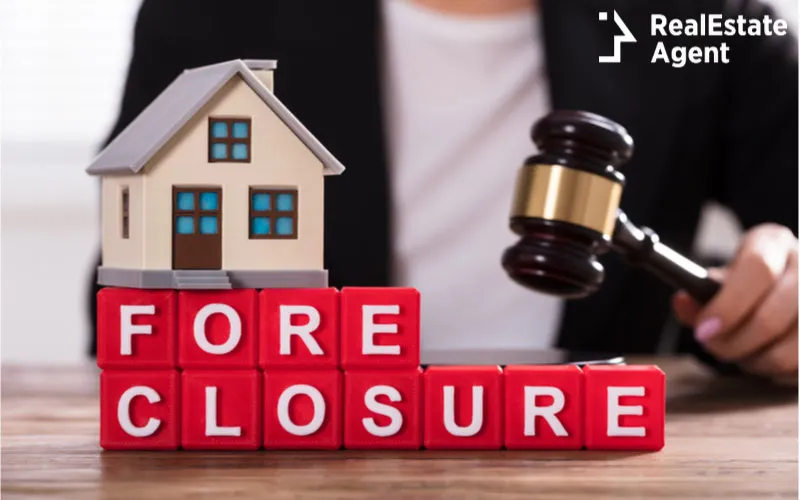
As soon as you sign the final document on the closing day, you enter the fight to avoid foreclosure - just like any other mortgagor. Every time you make a payment towards your home loan, you make your lender happy. Skip a few payments, though, and your lender will become extremely nervous. Your mailbox will see notice upon notice letters. Even then you can still avoid foreclosure. So, when you try your best to avoid foreclosure, it means that you intend to keep that property no matter what it takes and you have no intention to move.
According to Statista, the foreclosure rate in the US was 0.47% last year - almost equal to the one in 2005, just before the economic crisis. Should we treat it as the calm before the storm? “Since the market fluctuates, after every period of low foreclosure rates, we can expect a new recession. Nobody can predict how big the next wave will be,” said one of the real estate agents from New Jersey listed on RealEstateAgent.com. Coming from the state with the highest foreclosure rate could make you a little pessimistic. Real estate agents in Annapolis, Dover and Springfield - all capitals of states with high foreclosure rates, according to bankrate[dot]com - might - have witnessed many people recovering after a foreclosure.
Attom Data Solutions found that 624,753 homeowners entered foreclosure in 2018. Out of these, 230,305 (36.8%) properties became REOs. So, when a bank forecloses on a property, the owner still has some time left to try to recover the house. In this article, though, we will look at how you can stop the initiation of foreclosure and what are the main options to avoid foreclosure.
Why do foreclosures happen?

Whenever a doctor looks for a cure to an illness, he/she will want to know what causes that illness. To heal the patient, the doctor will try to eliminate the cause, not the symptoms. Foreclosures are symptoms. They speak of an underlying problem. Yes, you can get your house out of foreclosure with a short sale or deed in lieu of foreclosure, but you have to leave. And do you think you won’t get through this again?
One of the main causes behind a foreclosure is financial distress. A decrease in income is going to turn your world upside down. Furloughs and unemployment, both are dangerous for borrower’s finances. The unemployment rate was 3.9% in 2018, but many workers fear that their jobs will be replaced by robots or will completely disappear.
Another enemy for homeowners who still have an outstanding mortgage is an unexpected disease or death. Health problems go hand in hand with medical debt. Some hospitals may sue their patients and may even garnish their wages, especially if their health insurance did not cover the entire cost of the treatment. It is important to know that medical debt is a low priority debt. Don’t try to pay your medical bills by neglecting your mortgage payments or by going deeper into debt.
Adjustable-rate mortgages also act in the same way as wage garnishments do. When the interest rate increases, the borrowers owe more and the monthly payments leave them with less discretionary income. Depending on the type of loan, the interest may change every month or every three months. There is no guarantee that the interest rate will remain the same during the life of the loan. Those who want to eliminate this risk should only apply for a fixed-rate mortgage.
Single parents who managed to keep a house with a mortgage after divorce may also have a higher risk of facing foreclosure. Raising a child doesn’t come cheap so with a lower income the parent must make very hard decisions. Should he/she pay the mortgage or provide for the child? While a divorced mother is entitled to alimony, keeping a solid household after the death of your spouse is another challenge. Widows are also entitled to certain government grants. In fact, about 5 million widows and widowers receive Social Security benefits based on their partner’s earning records and credits. Don’t be ashamed or afraid to ask for help, or even to apply for government help if you qualify.
Also, look at the equity you have built in your house. You may think that it is worth fighting for a house when you had paid more than half of the principal. But there is no fixed rule. Sometimes you must let go of the past and rebuild your life after the foreclosure will end. Sometimes you may want to try all the steps to avoid foreclosure. Every situation is different, so, depending on your attitude towards long-term debt, here is what you can do to keep the house.
Loans to stop foreclosure

Is it a mistake to pay one debt with another debt? Well, when you’re keeping the house, then there’s nothing wrong with it. You’re still in debt, but at least you have a place to stay and, hopefully, one day you will pay off all your loans. And yes, there are a few loans of last resort that can help you avoid foreclosure. Be aware that the market is flooded with scams for those threatened with foreclosure, so we highly recommend you to work with a loan broker to find the right lender for your particular situation.
First of all, and probably the most popular, is the foreclosure bailout loan. To qualify for one, you must have at least 40% equity in your house and a credit score of at least 500.
Secondly, you have the option to modify your loan. Is your lender open to change the initial contract? Would they offer a forbearance until you find a new job or complete a new course that will allow you to enter a new career path? You may at least get a temporary reduction of the monthly payment. Don’t set too high expectations, though, because most lenders are not very flexible.
One more option would be a reverse mortgage if the borrowers are 62 or older. What is a reverse mortgage? Well, it’s a loan based on your home equity. The lender will give you exactly your share in the house, so it’s like selling the house to the lender without having to move out. Moreover, the borrowers don’t have to make any monthly payments afterward. Why? Because the house will be sold after the last survivor dies. Of course, the heirs may pay the loan in order to keep the house, but if the house gets sold, they still receive the money left after the debt is covered.
Try to refinance your mortgage, too! This might be the easiest way to avoid foreclosure. The lower your debt-to-income ratio, the higher the chance to be approved. Most borrowers think that they must work on increasing their income prior to applying for a mortgage or refinance when lenders prefer low DTI ratios. That’s why you should ditch the credit cards if you feel that you’re losing control over your finances and start a monthly budget to regain control over your expenses. Don’t you agree that you can increase your (remaining) income by lowering your expenses?
Can you stop a foreclosure once it starts?
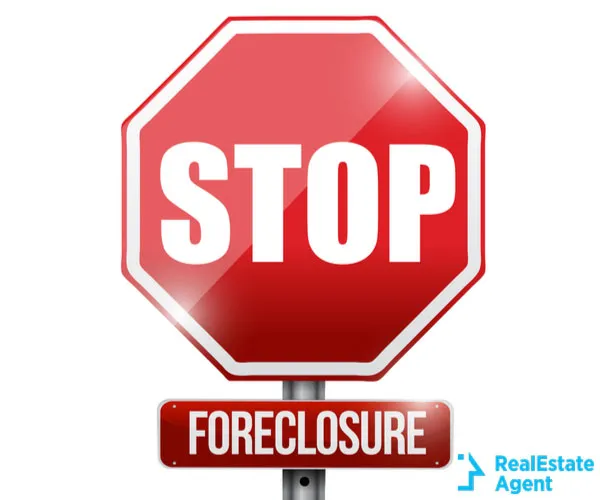
Technically, yes, you can stop it, but you will have to be very creative and you’ll definitely need help from outside. Besides emotional support, you also need money to pay the missed payments. Now, you may try to borrow the money either from a bank or from friends and family. Reinstating the mortgage is probably one of the best steps to avoid foreclosure. Catch up on payments in default and pay all the taxes you incurred due to foreclosure. Then, return to the following list of options to avoid foreclosure.
Steps to avoid foreclosure
1. Set up an emergency account
The worst thing you can do is to live from paycheck to paycheck. No matter how small your income, you can still put some money in an emergency account. It doesn’t have to be a huge chunk of your income every month, just enough to cover for some unforeseen events or a few monthly payments on your mortgage.
2. Readjust your spending habits
The average credit card debt of US households is about $6,700, according to NerdWallet. Americans love to spend more than they can afford. So what is the solution? Spend less, save more. Or don’t buy a large house as your starter home if you don’t want to give up your credit cards. You also need to install a budgeting app on your phone or take 30 minutes every evening to write down all your expenses for the day. With time, this will become a habit, but most importantly, it will make you more aware of where your money goes.
3. Declutter - Organize a garage sale!
In most states, you can organize at least two garage sales in a year. After a successful garage sale, you may end up with enough money to start an emergency fund or to catch up on a missed payment on your home loan or car loan. Secured debt always comes first!
4. Embrace minimalism - Change your lifestyle!
Look at all the things you have! What else do you need? Try to be content and grateful for what you have and push the brake on spending. As the old saying goes: the man who chases two rabbits catches neither. Homeownership demands certain sacrifices. As a debt that will follow you for most of your active life, the home loan should have the highest priority in your budget.
5. Make biweekly payments
It is important to follow your loan amortization schedule, but there’s nothing wrong about making extra principal payments. When you make a payment every two weeks, you gain one more month every year, so instead of paying for 30 years, you pay only for 28 years, or even less, depending on how much you reduce the principal.
6. Get help from the government
Do you have very low income? Or have you acquired a disability? Or maybe you are a senior hardly making ends meet. Don’t lose hope! You may qualify for Social Security Income, Welfare or Temporary Assistance for Needy Families (TANF).
7. Give up soft drinks
Drink more water! Bottled water is far cheaper than soft drinks and contains no sugar! It will help you lose weight and stay healthy. Not to mention the financial benefits. For example, Target sells 2-liter packs of Coca Cola for $1.79. Drinking one bottle every day for 300 days will take out of your wallet $537. You also ingest about 137 lbs of sugar. Did you know that the same amount of granulated sugar would have cost you only $78?
Spending over $500 on refreshments may not seem much, but as you know, whenever you go grocery shopping, you’re tempted to buy things that you didn’t actually plan for. You may find irresistible offers that encourage you to spend more, anyway. But instead of buying refined sugar, you may use that money to buy more nutritious food.
8. Give up smoking
The average price for a pack of cigarettes is $5.5. If you smoke one pack every day, you turn $2,000 a year into smoke. That’s for sure the equivalent of one monthly payment for a home loan, or even more. We know that it’s not easy to give up smoking, but you should do everything to quit this bad habit. Treat with utmost seriosity all the health issues associated with smoking - lung cancer, erectile dysfunction, oral cancer, heart disease - all these can dramatically impact your financial life.
9. Rent a room or a parking place
Do you have an extra bedroom or a rentable basement? It’s time to gain extra money by letting strangers in for a night or for a long stay. The rent you earn through Airbnb may help you cover the cost of homeownership. If you’re living near a University center, you can provide affordable student accommodation. If your property is near a touristy area, you may welcome tourists from all over the world. So, open your house and let it pay for itself.
10. Stop paying interest on your loan
You may have no desire to follow all these steps to avoid foreclosure because your loan is too expensive. A high interest rate on a loan can be off-putting, for sure. But what if you changed your perspective a little bit? What if you stopped complaining about how much interest you pay and did something about it. At RealEstateAgent.com we constantly look for legal ways to cancel the interest payments and make every home loan seem more affordable and easy to repay. Take a look at this article we’ve already published about passive income strategies that can compensate for the interest payments.
When is it too late to stop foreclosure?
In judicial foreclosures, the previous homeowner can recover his property for up to a year after the foreclosure sale took place, at the price it sold for at the auction. Unfortunately, most foreclosures are non-judicial so those who lose their properties cannot exercise the right of redemption. After the auction, it is too late to do anything. You have to vacate the property and remove all your personal property, allowing the new buyers to move in.
Can a lawyer stop a foreclosure?
The answer is yes. A foreclosure attorney can help any mortgagor facing foreclosure to postpone the next step and to slow down the process. Foreclosure attorneys don’t do charity work so it might be difficult to pay for their services when money is tight. Fees usually start at about $1,500. Those filing for bankruptcy are also allowed to keep the house while they restructure the debt and figure out the next steps to avoid foreclosure. The average cost of filing for bankruptcy with an attorney is around $300.
How to stop foreclosure at the last minute?
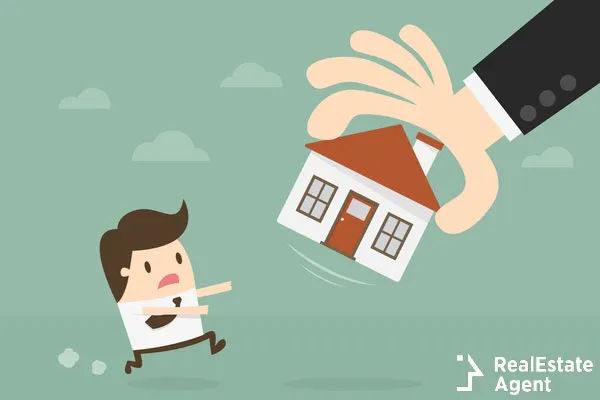
If only we were more preoccupied about our neighbor’s wellbeing! Most foreclosures could have been prevented if those people had not been judged and misunderstood. Maybe they have done everything right, but due to something impossible to predict, they became unable to make the payments. While lenders offer limited support in this situation, other good samaritans may be:
- Your kids
When things don’t go as planned, kids shouldn’t blame their parents. Instead, they should try to help them keep the house and repay the loan, even if that means they will have to save for a down payment a few years later than they thought.
- Your in-laws
Sharing is caring - that’s what they have to understand. The more people share the burden of a debt, the easier it is to pay it off. And, in the end, the property will be inherited by their nephews, anyway.
- A group of friends
Foreclosures are probably the hardest test for your friendship. If someone has pretended to be your friend just because of your material possessions, then that person was not a real friend. Your true friends can even find more steps to avoid foreclosure. They would rather encourage you and help you overcome the problems that got you on the verge of losing everything.
- A local church or community you belong to
You may get a temporary loan or financial aid from your church or from a community you are involved in. Also, there might be non-profit organizations that support people with low income or those facing foreclosure.
We’ve come up with all these steps to avoid foreclosure in order to help you keep a roof over your head. You can’t escape the repayment of debt or debt collectors, but there are plenty of ways to ease your financial burden. And if you lose your house even after doing everything that you could possibly do, don’t despair! That is just a new beginning.
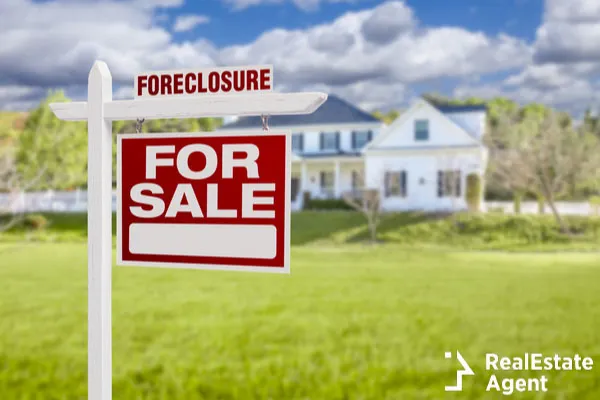
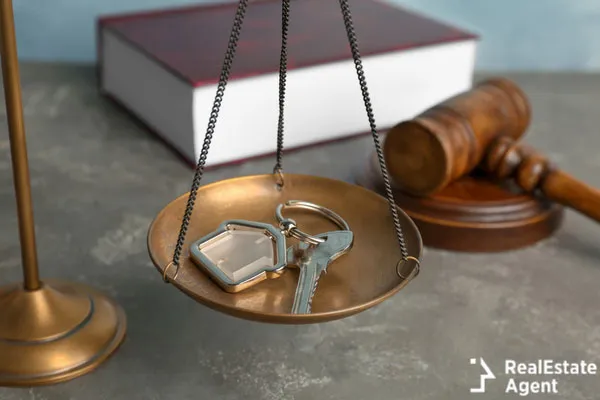
















Have a question or comment?
We're here to help.